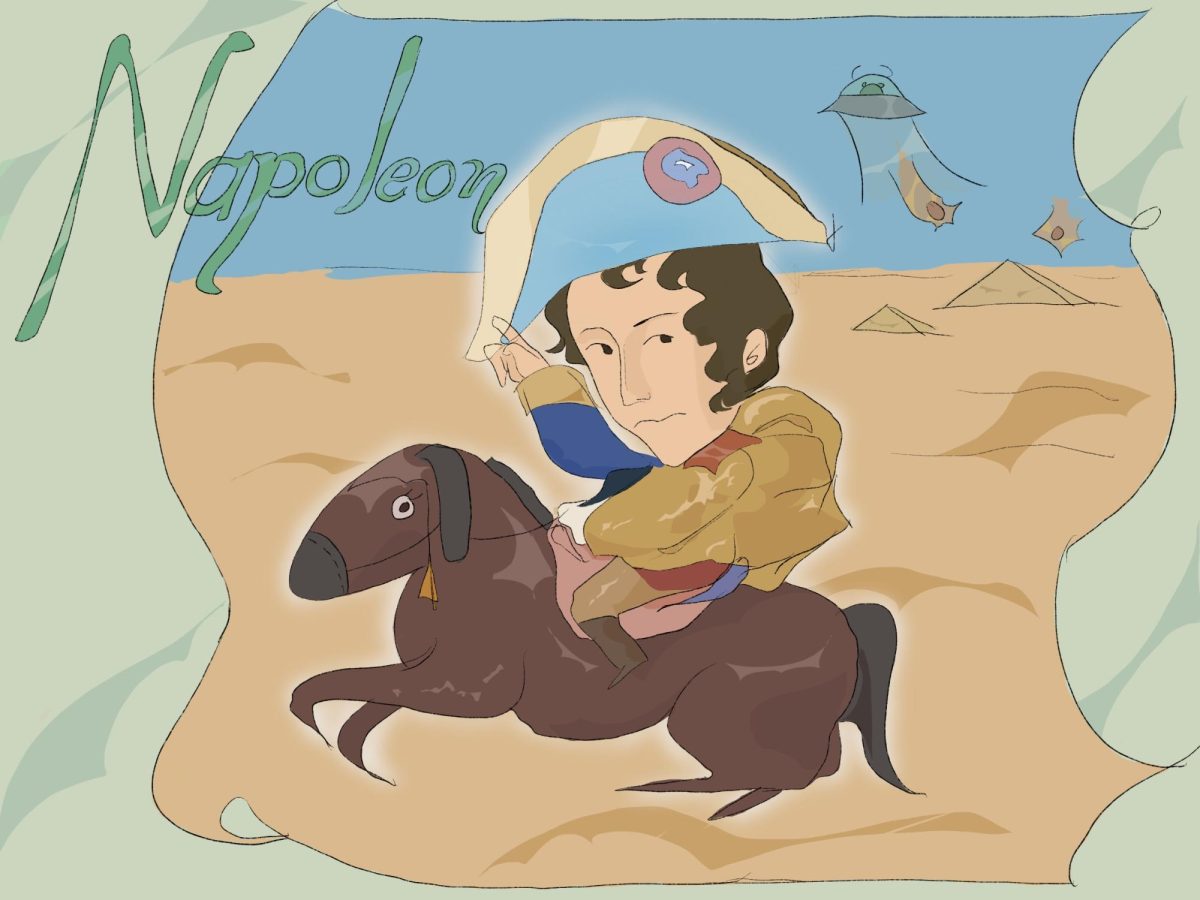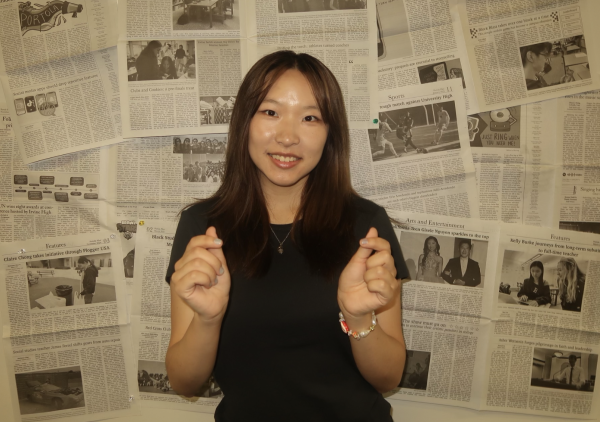In “Napoleon,” a film exploring the life of French emperor Napoleon Bonaparte in theaters since Nov. 22, director Sir Ridley Scott faced numerous criticism from the cinephile community for his inclusion of careless historical inaccuracies. From Marie Antoinette’s long hair under the guillotine to troops of Frenchmen firing cannonballs at the pyramids in Egypt, Scott took too many creative liberties for some to stand.
His response to the critics? “Get a life.”
Despite Scott’s dismissal, history is often more complicated than Marie’s long hair. Directors and creative producers should not change historical narratives through a medium as widespread and as popular as films because it could have major implications for our understanding of history.
“If you have an audience see something in a movie, they’re very likely to believe that it actually happened, which could skew the general knowledge of the topic,” junior Amicus Carrasco said. “People might have different views on something and then they’ll watch the movie and be like ‘That’s not how I remembered it.’”
The importance of historical accuracy and realism films resides in creating a true-to-life narrative of a past event for which the viewer is allowed to form their own conclusions. Events are often glorified or defamed in film to match the filmmakers’ stance on a particular issue, according to The Guardian. Because movies play a large role in popular culture, even unintentional choices like mischaracterizing key figures or oversimplifying sensitive happenings like war can create false assumptions about an event or a group of people.
“I think the major thing [about historical films] is that it can take the romanticized version of war into one like ‘This is actually like all these horrible things are happening,’” historical movies fan and junior Carter Choi said. “It [can] bring reality back into something that might seem mostly like action and fun.”
Moreover, films should stray away from overvaluing their creative choices to enhance the market for their movie because it does not accurately depict the events or respect those who have lived through them. For example, “Battle of the Bulge” reordered historical events for the purpose of drama and failed to account for the strenuous terrain and inclements that World War II soldiers had to endure. In comparison, “Saving Private Ryan” was able to effectively and accurately fictionalize the sole survivor policy, garnering much more support than its inaccurate counterpart, according to History.
“If you’re going to make a movie about an actual historical event and it’s a serious movie, you should probably try to keep it as accurate as possible,” Carrasco said. “It’s important that you’re not making stuff up for something as important as a historical event like a documentary or a film adaptation because it might be like the audience’s first exposure to that story.”
However, many directors value the creative interpretation films provide over their intended message, asserting that crafting a compelling narrative holds greater importance than strict adherence to a factual-based plot, according to The American Historian Association. In this sense, the power of cinematic storytelling, and its subsequent lack of historical accuracy, allow films to resonate better with audiences.
“We’re always going to be dealing with it being harmful, and so I think we need the tools to be critical of films and media from a very young age,” history teacher Heidi Martasian said. “I think that’s probably more important than making an artist [follow the guidelines of realism]. I think it’s impossible to be fully accurate.”
Despite the craving for entertainment some may have, it should remain the filmmakers’ responsibility to prioritize the representation of the past to respect those who have lived through sensitive and often over-dramatized time periods and evoke more thoughtful dialogue about shared human history.





